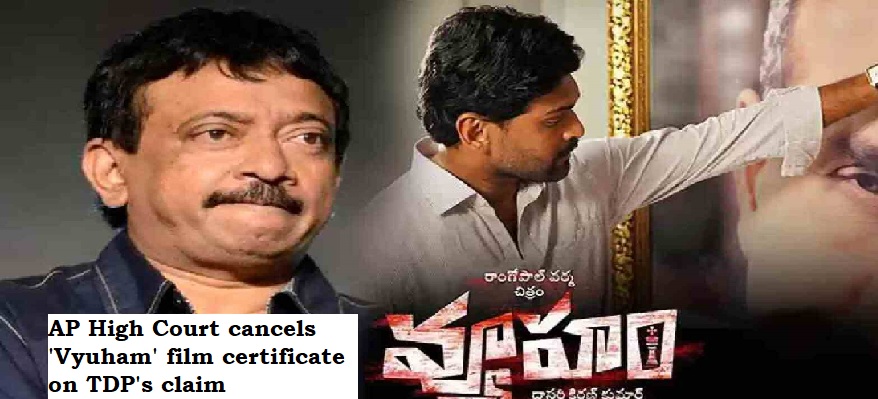


The Telangana High Court recently made a significant decision, responding to a petition filed by the Telugu Desam Party (TDP), by revoking the certification issued for the film 'Vyuham.' The court's ruling underscored the inherent limitations filmmakers face in tarnishing the image and reputation of political parties. In a nuanced exploration of the legal intricacies surrounding the case, the court delved into procedural irregularities and the balance between freedom of expression and the protection of political entities' reputations.
The TDP, in its petition, alleged that the film 'Vyuham' was defamatory to several political leaders associated with the party. Additionally, the party argued that the movie covered issues that were sub-judice. The court, presided over by Justice Surepally Nanda, entertained these claims and ultimately sided with the TDP, leading to the annulment of the film's certification for theatrical release.
The court scrutinized the decision-making process that led to the certification and found several flaws. It noted that the Revising Committee, responsible for the second review of the film, had disregarded the reasons provided by the Expert Committee during the initial rejection of the certification. This raised concerns about the lack of transparency and justification for the committee's decision.
The Expert Committee had previously raised issues about the film, stating that even the names of the individuals portrayed in the movie remained unchanged. The committee characterized the film as an interpretation of actual events following the death of ex-Chief Minister Y.S. Rajasekhar Reddy, including the formation of the present government under Y.S. Jagan Mohan Reddy and the Skill Development Scam. The committee asserted that the movie presented various political personalities in a defamatory manner, constituting propaganda material.
Despite these observations, minimal alterations were made to the film. The court emphasized that filmmakers do not possess an unbridled right to tarnish the image and reputation of individuals, political parties, or institutions. It stressed that reputation is a precious asset, earned over time, and the right to preserve one's reputation is acknowledged as a right against the entire world.
The filmmakers argued that political parties, not being individuals, could not claim defamation. They also contended that the certification decision was made by a body of experts, and the court's role was limited to examining the decision-making process. However, the court clarified that political parties are now recognized as distinct entities with constitutional recognition, as indicated by amendments to the constitution in 1985.
In considering the judicial review, the court relied on the principles laid down in the landmark case of Maneka Gandhi v. Union of India. It emphasized that the court should confine itself to examining questions of legality and not act as an appellate body. However, it found an apparent error in the procedure followed by the Revising Committee, as Rule 24(9) of the Cinematography (Certification) Rules, 1983, was not adhered to.
The court also highlighted that representations made by TDP members before the Revising Committee, urging against issuing certificates due to defamatory content and the Expert Committee's report, were not adequately considered. Despite placing these representations before the committee, there was no mention of them in the committee's report.
Drawing from the judgment in M. Shankara Reddy v. Amara Ramakoteswara Rao, the court emphasized that when the statute prescribes a specific manner of doing things, it should be followed precisely. In this case, the court identified a serious flaw, patent illegality, procedural impropriety, irrationality, and a breach of natural justice in the decision-making process.
The court concluded that the judgments relied upon by the respondents had no applicability to the present case. It rejected the contention that the decision-making process was in conformity with the law and that the Expert Body had found the film 'Vyuham' non-defamatory. The court's meticulous examination of the case highlighted the delicate balance between freedom of expression and the protection of reputations, ultimately leading to the quashing of the film's certification.
TAGS: Telangana High Court Vyuham film Telugu Desam Party (TDP) Defamation Political party image